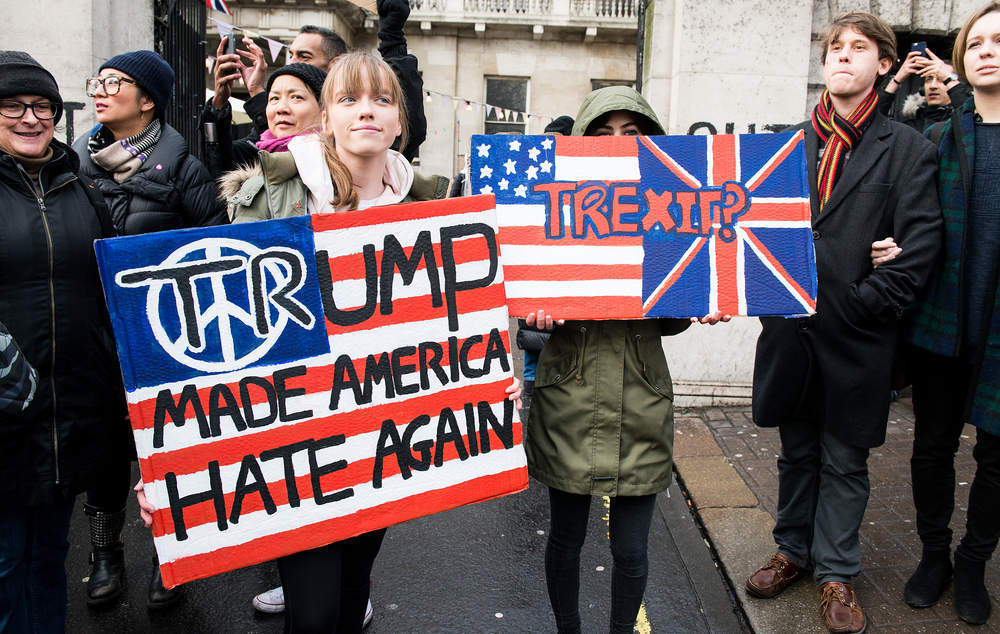
Downing Street has confirmed that US president Donald Trump will be visiting the UK later this year.
The news comes after Trump cancelled a visit planned for February earlier this month.
While prime minister of the UK Theresa May offered Trump a state visit last year, he will be sorely disappointed upon arrival.
Trump may “be prepared to apologise” for retweeting videos posted by far-right group Britain First, whether due to genuine remorse or in an attempt at improving relations with the British public ahead of his visit.
However, a free upgrade to one of Buckingham Palace’s guest suites is off the cards regardless.
Both governments have confirmed that the visit won’t be a full-scale state visit. Instead it will be a less formal working visit, but what’s the difference between the two?
How well do you really know your competitors?
Access the most comprehensive Company Profiles on the market, powered by GlobalData. Save hours of research. Gain competitive edge.

Thank you!
Your download email will arrive shortly
Not ready to buy yet? Download a free sample
We are confident about the unique quality of our Company Profiles. However, we want you to make the most beneficial decision for your business, so we offer a free sample that you can download by submitting the below form
By GlobalDataWhat is a state visit?
A state visit is an official visit to a foreign country by a serving head of state. In order to travel to a country on a state visit, an official must be invited by the host country’s head of state.
Visitors typically include Monarchs, Presidents and Prime Ministers.
For example, the UK has previously welcomed former US president Barack Obama and United Arab Emirates royal Khalifa bin Zayed Al Nahyan.
The US has previously welcomed the UK’s Queen Elizabeth II and Russian president Vladimir Putin.
During state visits, the host nation offers its guests the highest level of hospitality. This extends not only the visiting official, but their delegation of personnel.
The host nation covers all of the costs, including accommodation and travel costs.
Typically, head of states visiting the United Kingdom are put up in Buckingham Palace, Windsor Castle or The Palace of Holyroodhouse in Edinburgh.
According to the official British Royal Family website, these visits “play an integral role in strengthening Britain’s relationships with countries across the world”.
What happens on a state visit?
Typically, countries do not organise state visits to discuss or debate issues. They are a celebration of sort which focuses on the links between the two head of states’ nations.
Each country has their own way of welcoming head of states shaped by its own customs. However, host nations typically welcome arrivals with at least some of these events:
-
A welcome from the hosting head of state and their ambassadors.
-
A 21-gun salute, a military honour in honour of the visiting official.
-
A military band playing both national anthems.
-
An exchange of gifts between the two officials.
Following the visiting official’s arrival, a state banquet is usually held in their honour. Both heads tend to give a speech at the end of a lavish meal.
Throughout the visit, the visitor often pays visits to landmarks and historic sites. For example, Barack Obama visited the tomb of the Unknown Warrior in Westminster Abbey during his state visit to the UK in 2011.
How is a working visit different?
A working visit is similar to a state visit. It still refers to an official visit to a foreign country by a current head of state. However, they are less formal than state visits and tend to be stripped back affairs.
Most often, these visits are organised for officials to discuss issues between their two countries, rather than strengthen relations.
Unlike a state visit, the hosting head of state doesn’t need to approve a working visit ahead of the planned trip.
However, this also means that the host doesn’t have to treat its guests to the same level of hospitality as those on state visits. The hosting head of state doesn’t offer a royal welcome and a stay in their home is off the cards too.
The visiting party covers all of the costs involved and must organise their own accommodation and transport throughout their stay.







